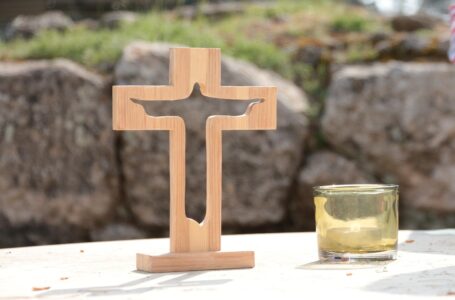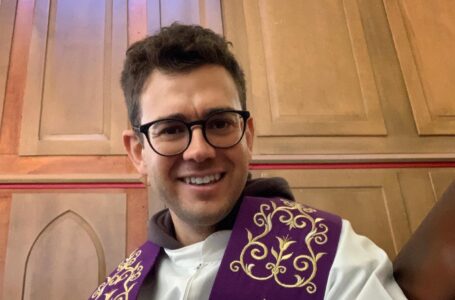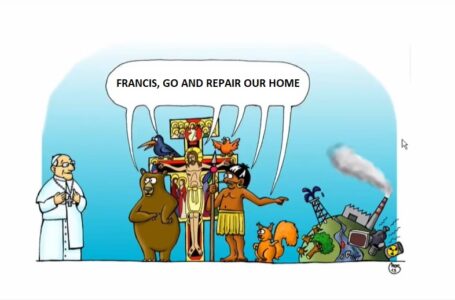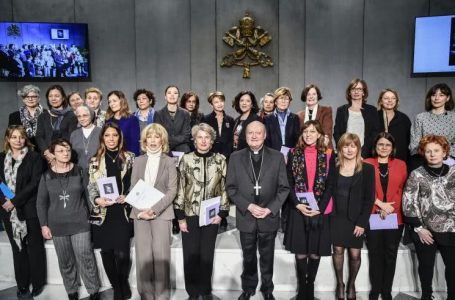Let Us Be Surprised by Hope During COVID-19!

The first weeks of the pandemic were accompanied by singing in balconies, clapping to doctors and nurses, and the words “All will be well!” A few months down the line, front-liners were protesting the irresponsibility of party organizers, Amazon’s founder (Jeff Bezos) saw his wealth rise by an estimated $48 billion while the number of unemployed grew exponentially, and many are facing a bleak and uncertain future as schools close again as numbers rise again. What is the future of hope?
As Pope Francis said during the 2020 Easter Vigil:
“Over these weeks, we have kept repeating, ‘All will be well’, clinging to the beauty of our humanity and allowing words of encouragement to rise up from our hearts. But as the days go by and fears grow, even the boldest hope can dissipate. Jesus’ hope is different. He plants in our hearts the conviction that God is able to make everything work unto good, because even from the grave he brings life.” (Easter vigil 2020).
Where can we see signs of “Jesus’ hope”?
1. What good can come out of Nazareth? Sowing seeds of hope
Like Nathanael, it’s relatively easy to rubbish what happens in Nazareth. We are easily tempted by a “prosperity” Gospel. We think that we find the real presence of God in moments of “success”, in the places of power and control, where there’s “good” money.
Yet, during these challenging months, Jesus is opening our eyes in the same way as he did with Nathanael. Hope resides in the Nathanaels of today who are rediscovering authentic life in the midst of our Nazareths marked by Covid-19:
- those who rediscovered the value of personal relationships;
- those who realised they have neighbours and can act like neighbours;
- those who rediscovered a sense of wonder as they gave time for home-baked bread and a better rhythm of life;
- those who rediscovered the value of initiatives taken from the grassroots. For many, and for a long time, responsibility was shifted blindly onto those in power. Now many realized that they have a say, and an essential one, to reach out to those forgotten by corrupt leaders, to push for change of unjust structures, to celebrate the Lord who “scatters the proud” and “raises the humble” (cf. Luke1, 51-52);
- those who took the option of hope (rather than armchair critics): “when people decide to live no one can stop them”! (Expression of a woman after the tragic explosion in Beirut on 4th August 2020)
- those who are like the women of the dark yet Holy Saturday. “On the Sabbath they were doing something simple yet extraordinary: preparing at home the spices to anoint the body of Jesus. They did not stop loving; in the darkness of their hearts, they lit a flame of mercy. (…) How many people, in these sad days, have done and are still doing what those women did, sowing seeds of hope! With small gestures of care, affection and prayer.” (Pope Francis, 2020 Easter Vigil homily)
How can we sow the seeds of hope in our Nazareths for a future not yet known?
2. Entertainment as the opium of the people? Let us not place a stone before hope
For some time, religion was presented as the “opium of the people”. In the name of a heavenly afterlife, people were being robbed of their present. So to protect the status quo, people were prevented from improving their lot, from welcoming the Kingdom of God in the present.
In our times, entertainment had become “the new opium” robbing people from the future. We were being tempted to get lost in the present (“Enjoy the moment!”), amusing ourselves to death. Moreover, the new possibilities of communication offered by modern technology were being dominated by propaganda and fake news. This creates a fog that stops us from seeing the human face of the other and the path to a better future.
But somehow, during the pandemic, we started to challenge certain illusions. So the stone that seemed impossible to move, started to shake.
- Very often we were dominated by the commandment to “be positive”. However, this made us blind to the grave injustices of our time and mute before those abusing of power. With Covid-19, not only did we fear “testing positive”, but we rediscovered the freedom to speak of our vulnerability, anxieties, challenges. We became more aware that authorities that were telling the hard truths (giving the real numbers of Covid cases, communicating the measures that need to be taken) gave us real security. Those manipulating information as part of their power games were unmasked.
- Young people – an easy target for those who get rich through selling alcohol, drugs, and entertainment – awoke to the fact that their future is compromised. They became aware that missing out on education and authentic friendships will impact not only their present but also their future. Suddenly, the future is rediscovered. The stone that was blocking the horizon is taken away.
“Let us not place a stone before hope.” (Pope Francis)
How do you imagine a better future? How can you contribute to make it happen?
3. “We are not in the same boat. We are in the same storm”. May we bring the song of life.
In a discussion organized by the Taizé community, young people had to give their reaction to the pandemic. Their insights are an eye-opener! One of the young people said: “We feel frustrated. Politicians and other leaders are telling us to ‘be responsible’, to ‘stay inside’, to care for the elderly and other vulnerable persons. This we understand. But a few months ago we were protesting, asking for concrete action to address climate change. If not, the impact on us – younger generations – will be disastrous. We feel frustrated because we saw no sign of solidarity back then”.
Another said: “We are not on the same boat. We are in the same storm”. The pandemic has illustrated in a clearer way than before
- the huge inequalities caused by the current economic system,
- the need for real solidarity between generations and between countries,
- that we do not stand above creation but we are part of it: we need to care for it as much as we live by what we receive from it.
The truth of our interconnectedness is clearer now than before the pandemic. Yet it feels very frustrating and dark when we find ourselves facing a system built on individualism and slavery to the god of consumption. Yet, hope lies with people who recognise all this but do not stop there. They commit themselves to influence processes through concrete gestures.
“How beautiful it is to be Christians who offer consolation, who bear the burdens of others and who offer encouragement: messengers of life in a time of death! In every Galilee, in every area of the human family to which we all belong and which is part of us – for we are all brothers and sisters – may we bring the song of life!” (Pope Francis, Easter Vigil 2020)
What are the concrete gestures that can bring greater equality, solidarity and care for creation?
Let us not be robbed of our hope!
The Covid-19 pandemic has been compared to a storm that threatens to destroy us. In addition, with so many unknowns and insecurities to face, fear and anxiety can block us. So we can either let ourselves be carried away or choose hope. Not any kind of hope but Jesus’ hope. There we recognise a hope that opens to a sure future while empowering us to act in the present. This is what Charles de Foucauld expressed in a letter to the Poor Clares (transferred from Nazareth to Malta) in the midst of the First World War:
“We are living days where our soul experiences a strong need for prayer. In the storm that is raging across Europe, we recognize the nothingness of creatures and we turn to the Creator. In the boat tossed by the waves, one turns to the divine Master, and one begs the One who with a word can give victory and long lasting calm. We stretch our arms towards heaven like Moses during the battle of his own people, and where man can do so little, we pray to Him who can do everything.”
(Letter to Mother Saint-Joseph, Tamanrasset, 28 November 1916)
This article was originally written for the International Bulletin of the Lay Fraternity Charles de Foucauld (No. 103, 2020). It is being published online on Universe of Faith for the first time.
Read more:
– Corona Virus Poem – Doing Things Differently
– Top Pope Francis Prison Quotes













